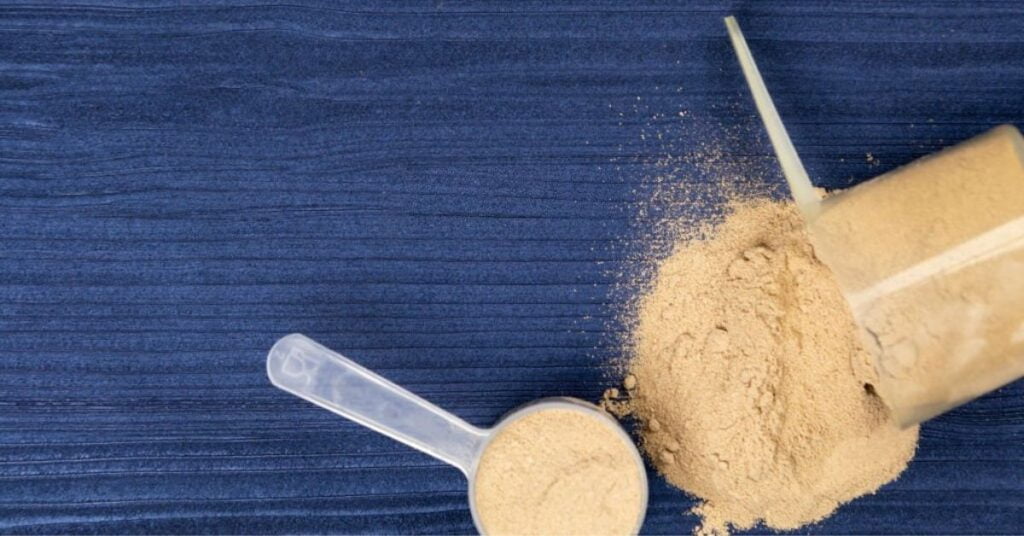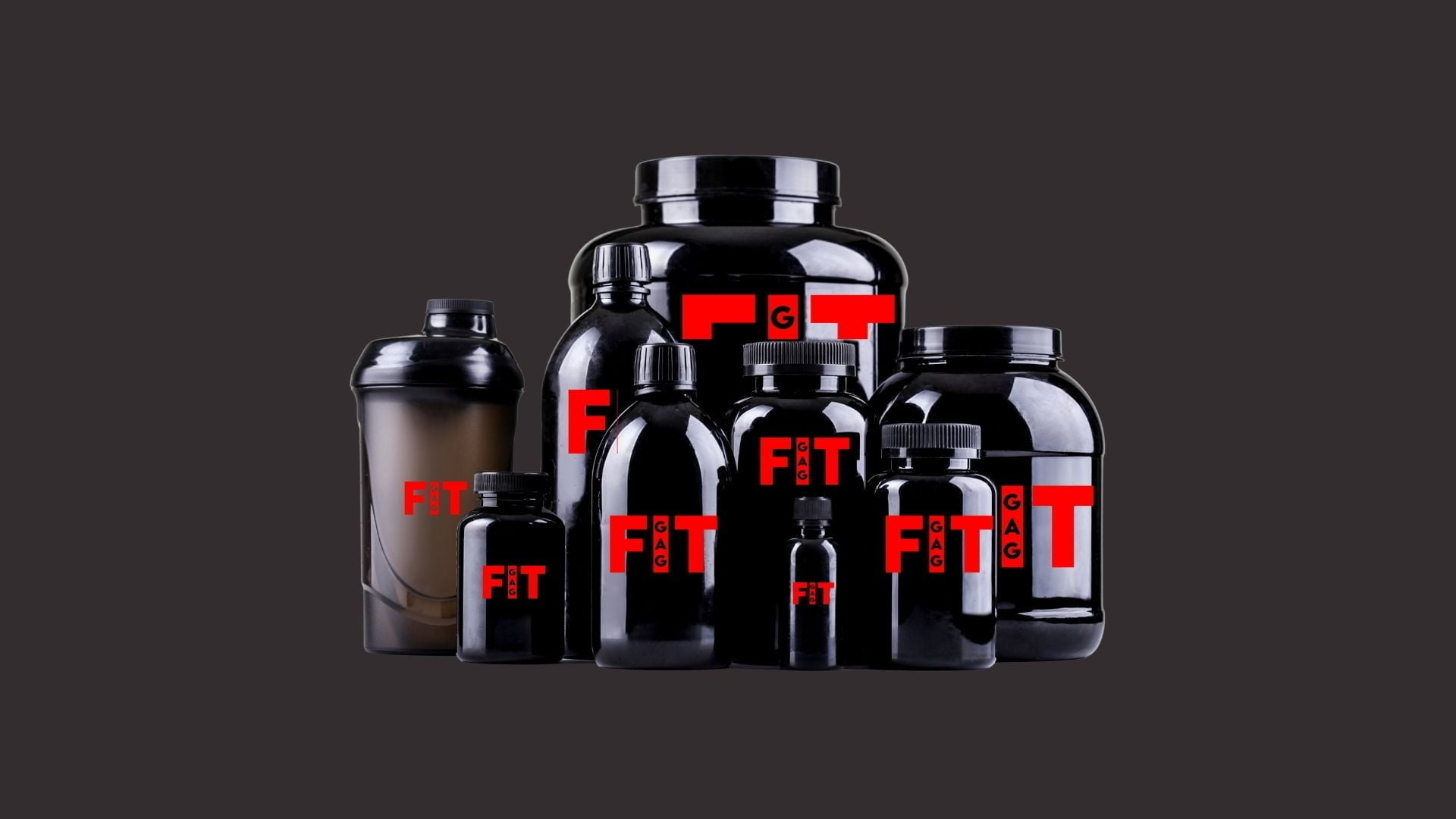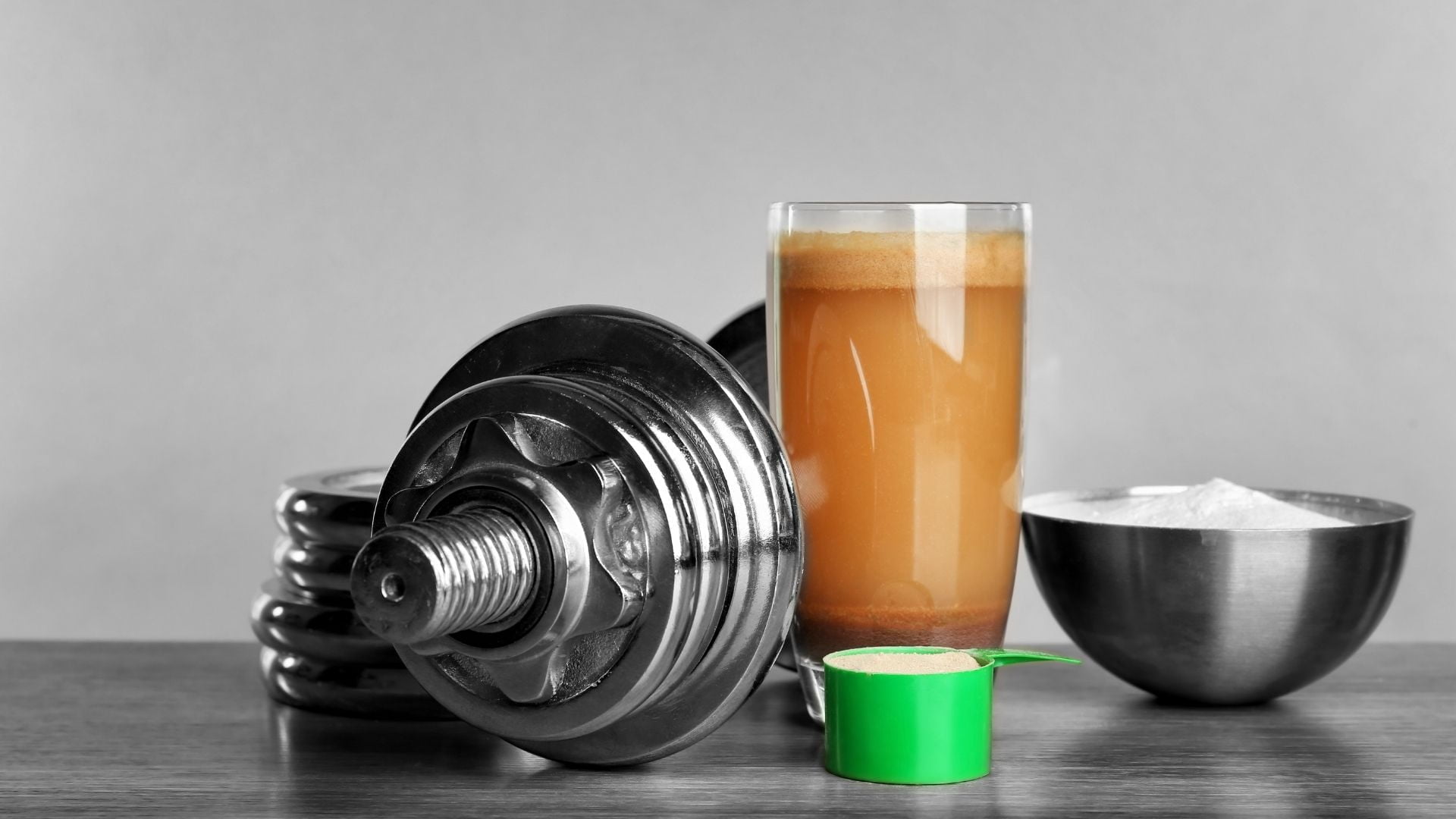
6 Things You Consider Before Taking Creatine Powder
If you are a fitness freak or a gym-goer, you must have heard about ‘creatine powder’ multiple times. Creatine is among the most commonly researched and famous ingredients in the health and fitness industry as it is a part of dozens of pre and post-workout supplements. There are numerous benefits of creatine, and different people use it for different reasons.
Creatine is one of the most popular sports supplements for its ability to increase athletic performance. Also, when you talk about muscle recovery and building endurance, creatine is one supplement that everyone will recommend to you. It’s quite in demand for all the good reasons. But do you know what things to consider before taking creatine powder, especially if you are a beginner?
Don’t worry. We’ve got everything covered. Creatine is a popular supplement used by many people all over the world. As with any product, there are some things you should consider before taking it to ensure you are getting the right product providing you with the benefits you want. So let’s get started from the basics!
What is Creatine?
Creatine is an amino acid present naturally in human muscles and brain tissues. It is produced by the liver, pancreas, and kidney. From these, creatine travels in the blood streams to the muscles and gives energy for muscle contraction. Creatine breaks down into creatine phosphate, which is stored in the muscles and provides energy to working muscles.
Though our body can produce creatine, nearly half of it is taken through food sources. Some food items also contain creatine. There is an excellent amount of creatine present in red meat, fish, eggs, milk, and cranberries.
Although people take some amount of creatine daily through diet, it is not enough. So, for resistance training and intense workouts, which demand a quick energy supply, creatine supplements come to the rescue. The creatine powder supplement may increase your creatine content by 20% during heavy exercises.
How Does Creatine Work?

There is still some uncertainty about how creatine improves physical and cognitive functioning in humans. However, there are a few proposed mechanisms.
One of these mechanisms is muscle cell volumization. Muscle cell volumization is a process where the muscle cells fill up with fluid and make them larger. This increase in size can lead to improved strength and power.
Creatine is a naturally occurring compound found in muscle tissue and blood stream. It uses osmosis to take water from the blood stream while sending excess fluids outside of your body through pores on its cells which causes quick weight gain for those who supplement with this product.
According to a study, another proposed mechanism is the quick resynthesis of phosphocreatine. Phosphocreatine is synthesized between the rest and recovery period of intense exercise. If you take more creatine, there is more chance of phosphocreatine synthesis during that period. If you have more phosphocreatine, it will give you the temporary but quick energy for recovery using an enzyme creatine kinase.
In another mechanism, creatine increases the number of satellite cells. They are stem cells of muscle fibers. If satellite cells increase in number, there are significant chances that muscles will grow bigger and stronger too.
What are the Benefits of Creatine Powder?
There are multiple benefits of creatine powder. In 2017, the International Society of Sports Nutrition (ISSN) released a paper on the effectiveness and safety of creatine supplements in sports, medicine, and exercise. Based on the study and research, here is why you need to take creatine:
- Recovers strength after intense training.
- Lessens the injury risk.
- Aids quick recovery.
- Helps gain and increase muscles.
- Improves athletic performance.
- Enhances lean body mass and muscle size.
- Reduces fatigue and tiredness after a workout.
Creatine not only improves muscle growth, performance, and recovery, it also has positive neurological effects. According to a study, creatine improves cognitive functions in the elderly people and also helps improve short term memory, stress, and intelligence.
There was a 12-weeks study about creatine’s effect on blood sugar levels after having a high-carbohydrate meal. According to the results, people who take creatine with workout have improved blood sugar levels than those who merely workout.
What are the Drawbacks of Creatine Powder?
As excess of everything is bad, the same goes for creatine intake. Some people may experience stomach issues because of bloating after taking creatine supplements. You may feel bloated when you start taking creatine during the creatine loading phase. It is the phase that involves taking a large amount of creatine supplement over a short period, typically 20–25 grams for 5–7 consecutive days.
The reason is creatine attracts water into your muscle tissues during this period, leading to weight gain and you feel bloated. However, you can avoid this by taking 10 grams of creatine or slightly less per serving.
Some people think that creatine powder can cause kidney damage. But that’s not true. Research including people of all ages has shown that using creatine supplements has no adverse effects on kidney function. It is a misconception as no such studies are available yet.
Things to Consider Before Taking Creatine Powder

Creatine powder has multiple benefits, but there are some things that you should keep in mind before taking creatine powder. Here are the 6 things that you must consider before taking creatine powder:
#1 Type
There are three types of creatine: monohydrate, phosphate, and citrate. Monohydrate is the most popular form because it is the most effective and the most research has been conducted on it. Phosphate and citrate are not as effective as monohydrate, but they may be better tolerated by some people.
#2 Price and Quality
Creatine supplements vary in price, but the quality does not necessarily correlate with the price. There are many high-quality creatine supplements on the market that are reasonably priced. However, there are also some very expensive creatine supplements that are not any better than the cheaper brands. When choosing a creatine supplement, be sure to research the quality of the product and don’t just focus on the price.
#3 Flavours
Creatine supplements come in a variety of tastes. However, since it is flavorless naturally, people prefer unflavored creatine powder supplements. All of the flavors you see on the market are created chemically. So choose carefully and give unflavored supplements a try if you want to avoid any unpleasant surprises. DMoose provides an unadulterated blend of creatine powder that has no fillers for optimal effects.
#4 Solubility
The solubility of creatine supplement tells you how much of the supplement can dissolve in water. The higher the solubility, the more the supplement will dissolve. This is important to know because it affects how easily the body can absorb the supplement. If the body cannot absorb the supplement, it will not be able to use it effectively.
#5 Expiry
It is your responsibility to check the manufacturing and expiry details on the packaging. Ensure you don’t have the expired creatine powder because using the expired product will do no good to you.
#6 Dosage
Keep in mind the recommended dosage of the creatine powder. Do not take more than the suggested dosage. Generally, the recommended dosage is 3-5 g four times a day.
When to Take Creatine Powder?

Some say it is best to take creatine powder before a workout, while others support its intake after a workout. It’s a great idea to take creatine before workouts, as this will increase the lean mass of our desired areas, which can lead us towards having more energy during intense workouts.
However, you can take it after working out for it to help you recover from your workout soreness and replenish the energy of depleted muscle cells. In our opinion, it is better to take it shortly after any exercise because creatine powder alone is not a pre-workout component.
The Bottom Line
Creatine powder is an effective supplement for workout recovery, muscle gain, lean body mass, and reduced injury. It is particularly beneficial to those who want fast muscle growth. For improved effect, you can take foods with more carbohydrate and protein content.
If your intake is within the prescribed limit, there are no severe side effects of creatine powder. But remember to look for the type, quality, flavour, solubility, expiry, and dosage of the creatine powder you are using.
References
- Avgerinos, Konstantinos I., et al. “Effects of Creatine Supplementation on Cognitive Function of Healthy Individuals: A Systematic Review of Randomized Controlled Trials.” Experimental Gerontology, vol. 108, July 2018, pp. 166–73. PubMed Central, https://doi.org/10.1016/j.exger.2018.04.013.
- Cooper, Robert, et al. “Creatine Supplementation with Specific View to Exercise/Sports Performance: An Update.” Journal of the International Society of Sports Nutrition, vol. 9, July 2012, p. 33. PubMed Central, https://doi.org/10.1186/1550-2783-9-33.
- de Souza E Silva, Alexandre, et al. “Effects of Creatine Supplementation on Renal Function: A Systematic Review and Meta-Analysis.” Journal of Renal Nutrition: The Official Journal of the Council on Renal Nutrition of the National Kidney Foundation, vol. 29, no. 6, Nov. 2019, pp. 480–89. PubMed, https://doi.org/10.1053/j.jrn.2019.05.004.
- Deminice, R., et al. “Creatine Supplementation Increases Total Body Water in Soccer Players: A Deuterium Oxide Dilution Study.” International Journal of Sports Medicine, vol. 37, no. 2, Feb. 2016, pp. 149–53. PubMed, https://doi.org/10.1055/s-0035-1559690.
- Gualano, B., et al. “Effects of Creatine Supplementation on Glucose Tolerance and Insulin Sensitivity in Sedentary Healthy Males Undergoing Aerobic Training.” Amino Acids, vol. 34, no. 2, Feb. 2008, pp. 245–50. PubMed, https://doi.org/10.1007/s00726-007-0508-1.
- Guimarães-Ferreira, Lucas. “Role of the Phosphocreatine System on Energetic Homeostasis in Skeletal and Cardiac Muscles.” Einstein, vol. 12, no. 1, 2014, pp. 126–31. PubMed Central, https://doi.org/10.1590/S1679-45082014RB2741.
- Hall, Matthew, and Thomas H. Trojian. “Creatine Supplementation.” Current Sports Medicine Reports, vol. 12, no. 4, Aug. 2013, pp. 240–44. PubMed, https://doi.org/10.1249/JSR.0b013e31829cdff2.
- Kreider, Richard B., et al. “International Society of Sports Nutrition Position Stand: Safety and Efficacy of Creatine Supplementation in Exercise, Sport, and Medicine.” Journal of the International Society of Sports Nutrition, vol. 14, no. 1, June 2017, p. 18. BioMed Central, https://doi.org/10.1186/s12970-017-0173-z.
- McMorris, Terry, et al. “Creatine Supplementation and Cognitive Performance in Elderly Individuals.” Neuropsychology, Development, and Cognition. Section B, Aging, Neuropsychology and Cognition, vol. 14, no. 5, Sept. 2007, pp. 517–28. PubMed, https://doi.org/10.1080/13825580600788100.
- Olsen, Steen, et al. “Creatine Supplementation Augments the Increase in Satellite Cell and Myonuclei Number in Human Skeletal Muscle Induced by Strength Training.” The Journal of Physiology, vol. 573, no. Pt 2, June 2006, pp. 525–34. PubMed, https://doi.org/10.1113/jphysiol.2006.107359.
- Ostojic, Sergej M., and Zlatko Ahmetovic. “Gastrointestinal Distress after Creatine Supplementation in Athletes: Are Side Effects Dose Dependent?” Research in Sports Medicine (Print), vol. 16, no. 1, 2008, pp. 15–22. PubMed, https://doi.org/10.1080/15438620701693280.
- Powers, Michael E., et al. “Creatine Supplementation Increases Total Body Water Without Altering Fluid Distribution.” Journal of Athletic Training, vol. 38, no. 1, 2003, pp. 44–50. PubMed Central, https://www.ncbi.nlm.nih.gov/pmc/articles/PMC155510/.











